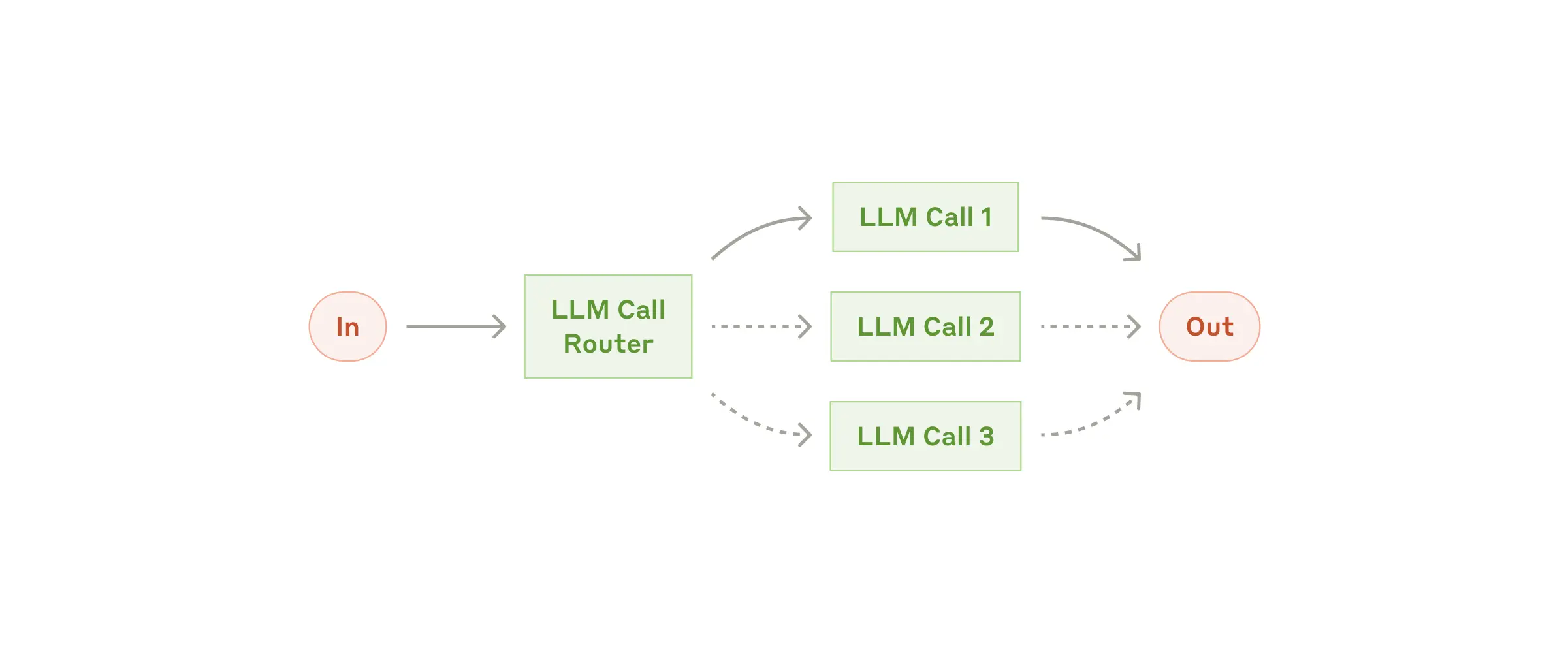
Overview
The Router Pattern intelligently analyzes incoming requests and routes them to the most appropriate handler from three categories: MCP servers, specialized agents, or individual functions.Complete Implementation
The Router pattern intelligently routes requests to the most appropriate handler based on natural language analysis. Here’s a comprehensive implementation:Basic Router Setup
Advanced Routing Patterns
Multi-Provider Support
Confidence-Based Decision Making
Custom Routing Logic
Key Features
- Multi-Category Routing: Routes between MCP servers, agents, and functions
- Confidence Scoring: Returns confidence levels with reasoning
- Top-K Results: Multiple routing candidates ranked by relevance
- LLM-Powered: Uses natural language understanding for routing decisions
- Provider Agnostic: Works with OpenAI, Anthropic, and other LLM providers
Use Cases
Customer Service Systems
Intelligently route customer inquiries to appropriate specialists:- General Inquiries: Basic questions to general support agent
- Technical Issues: Complex technical problems to specialized tech support
- Billing/Refunds: Financial matters to billing department
- Sales Inquiries: Product questions to sales representatives
Content Management and Analysis
Direct content-related requests to domain experts:- Technical Documentation: Route to technical writers
- Marketing Content: Direct to marketing specialists
- Legal Content: Route to legal compliance reviewers
- Data Analysis: Send to analytics specialists
Development and Operations
Route development tasks to appropriate systems:- Code Reviews: Direct to security, performance, or maintainability experts
- Deployment: Route to staging, production, or testing environments
- Monitoring: Send alerts to on-call engineers or specific team channels
- Documentation: Route to appropriate documentation systems
Model and Resource Optimization
Optimize costs and performance through intelligent routing:- Simple Queries: Route to faster, cheaper models
- Complex Analysis: Direct to more powerful, expensive models
- Specialized Domains: Route to domain-specific fine-tuned models
- Load Balancing: Distribute requests across multiple endpoints
Setup and Installation
Clone the repository and navigate to the router workflow example:mcp_agent.secrets.yaml:
mcp_agent.config.yaml:
Configuration Examples
MCP Server Configuration
Configure server descriptions to help routing decisions:Router Configuration
Full Implementation
See complete router examples with specialized agents and routing logic.
